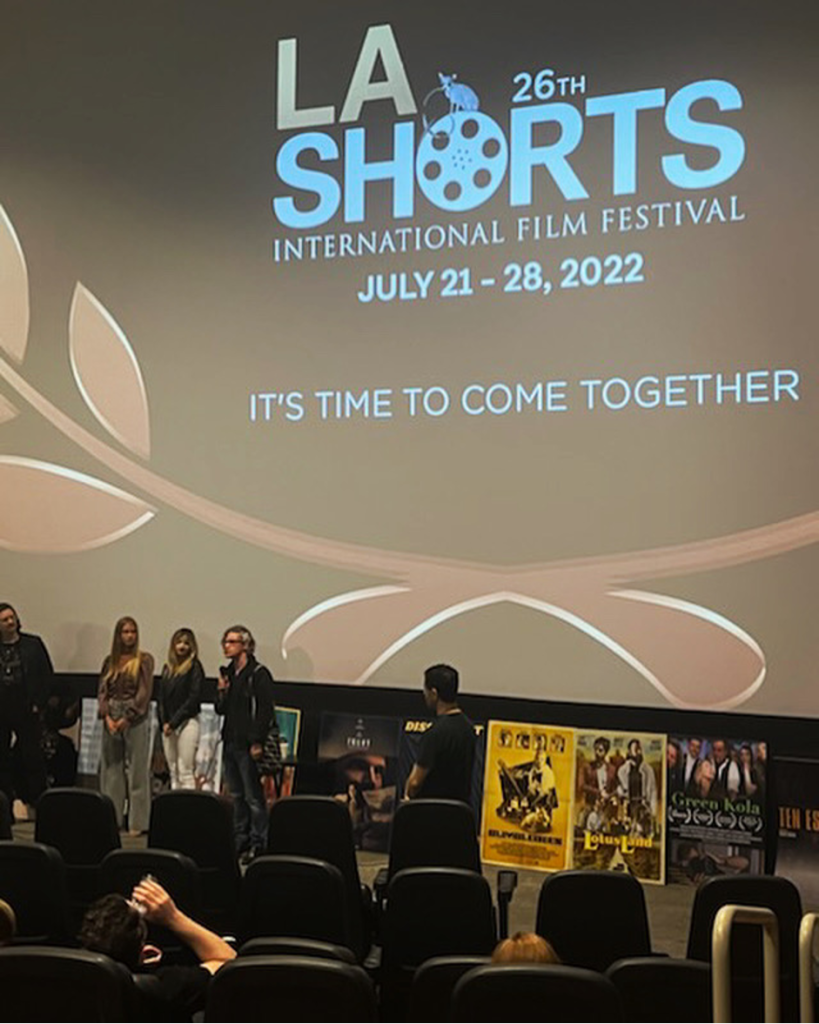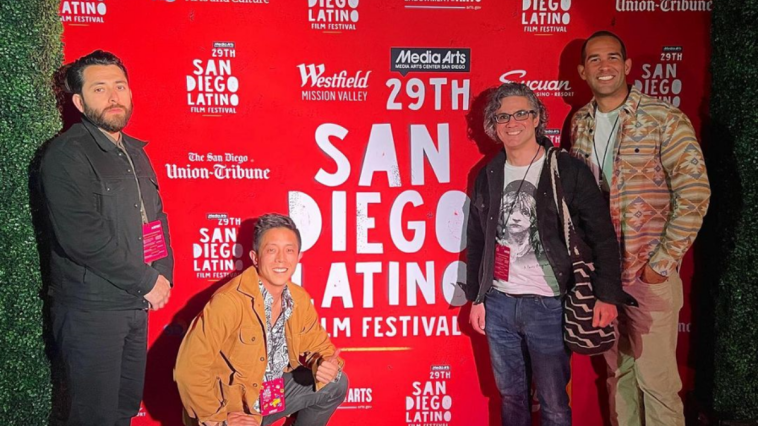In an era where narratives are vying for attention on screens both big and small, Vee Saieh emerges as a voice you can’t ignore—a writer and filmmaker whose work does not merely entertain but also kindles crucial dialogues. With the increasing importance of representation and diversity in today’s cinematic landscape, Saieh is making sure her stories aren’t just told, but are deeply felt and widely celebrated.
The film and entertainment industry today faces a paradigm shift unlike any other era. The advent of streaming services, social media, and a keen focus on inclusion and diversity has transformed what it means to be successful in this field. The days of traditional gatekeeping are giving way to a more democratic, interconnected landscape where success is often synonymous with meaningful impact. It’s not enough to just have a box office hit; audiences now demand films that resonate with them on a personal level, projects that reflect the reality of a diverse society and contribute to social change.
Vee Saieh, a luminary in this dynamic space, has shown an extraordinary knack for blending entertainment with insightful social commentary. With a portfolio that includes lauded projects like “La Ruta”—which was recognized for advocating social change and received the Gold Telly for Social Video—Saieh has managed to carve a niche for herself. As a Colombian and part of the Latinx community, she brings unique perspectives into her storytelling, be it about social relations among Latinx people in the United States or broader themes like identity and belonging.
One of her standout projects, “Noche del Infierno,” solidifies her place as a creator of substantial influence and importance. She served as the lead writer on this groundbreaking film, steering it toward multiple accolades that prove its mettle. Not only did it win Best Fantasy Film at the Official Latino Film and Arts Festival, but it also clinched Best Narrative Short at the San Diego Latino Film Festival and even screened at the prestigious Slamdance Film Festival. During our exclusive interview, Saieh delved deeper into the journey of this film. Her work on it profoundly shaped the direction of the story, anchoring it in her own experiences as a “very Americanized Colombian.” Her film tackles the nuanced and often problematic realm of gatekeeping within the Latinx community, telling her audience, “if you’re Hispanic, you’re Hispanic enough. Period.”
Vee Saieh is more than just a writer; she is a storyteller for a generation yearning for stories that mirror their complex, multi-faceted lives. Whether it’s challenging the entrenched norms of Latinx identity or balancing nuanced social commentary with engaging narratives, Saieh’s work brings a richness that is rare yet increasingly necessary in today’s films. Her achievements are not merely a list of awards or critical recognitions but marks of a story well told and an audience deeply touched. And in an age craving authenticity and depth, Vee Saieh is a name you will undoubtedly hear more often.
Hey, Vee. We’re so excited to speak with you! What inspired the core narrative of “Noche del Infierno”? Were there any personal experiences or cultural influences that catalyzed the storyline?
While there was already a draft when I came on the project, where I took it from there was absolutely influenced by my culture and personal experiences. Briefly, Noche is about three freshman pledges who want to join the most prestigious Latina sorority in the country. However, to do so, they must first survive a magical test that will redefine their concept of Latinhood.
In the Latine community in the States, there is a lot of gatekeeping where Hispanic-Americans are often considered too American to be Hispanic, depending on a multitude of factors ranging from their nationality to their race to whether or not they speak Spanish. And while I’m not American, this is something I’ve experienced personally as a very Americanized Colombian.
So, I wanted to tell a story that called out that toxic gatekeeping and that says, “regardless of these qualifiers, if you’re Hispanic, you’re Hispanic enough. Period.”
With “Noche del Infierno” earning accolades across multiple festivals, how did each recognition influence your perspective on the film’s impact and your own work?
Every accolade the film has earned has had an impact on me. However, what affected me the most wasn’t a prize we received, but a screening we had with NewFilmmakers LA as part of a Latine program. The audience itself was heavily Hispanic, and to say the short was well-received would be an understatement. The laughter was louder, the scares felt more intense, and the cheering during the credits told me they got it.
The whole film just lands differently when people can relate to the narrative on a personal level, and it speaks to our collective lived experience as Latines. It was very empowering and encouraged me to continue to write from the heart.
What challenges did you face in maintaining the depth and intricacy of the story throughout the screenplay, and how did you navigate them?
The short being a horror-comedy, it was tricky to strike the balance between the two genres as they’re practically diametrically opposed. You also have to consider that not all horror-comedies are the same, with some leaning more toward the horror and vice versa. So, it really was a matter of figuring out where the project landed on the horror-comedy spectrum, identifying its voice, and then staying true to it.
What was also tough was balancing the “fun” aspects of the film with its social commentary. Too much of the former and you end up with little substance, but too much of the latter and you might bore the audience. The best solution I found, really, was to intertwine those two aspects so that the “fun” beats themselves carried the underlying social commentary. Basically, you give the audience something fun and engaging without drawing attention to the fact that you’re also giving them something to think about. It’s what I call “slipping the peas in with the mashed potatoes.”
Considering the broad resonance of “Noche del Infierno,” how did you ensure the narrative was universally relatable, crossing cultural and geographic boundaries?
While it’s true that Noche del Infierno is very Latine-specific, I think that the broader themes of gatekeeping and being made to feel as “less than” are a universal experience that reaches across the boundaries of race, gender, religion and other qualifiers. Everyone— absolutely everyone—knows what it feels like to be told you’re not enough. That is not something that’s Latine-specific.
So, while writing this film, I focused on making sure that even though the presentation was exclusively Latine, it was coming from a place of emotional truth and honesty. It’s the same reason why films made in the States featuring American culture can still resonate globally. The human experience knows no borders.
“Noche del Infierno” has been recognized consistently in various circuits. What, in your opinion, makes a narrative stand out and receive such consistent appreciation?
For Noche del Infierno, specifically, I think it’s because the narrative was successful in what it did and worked on different levels. Not only does it fulfill its promise as a horror and a comedy, delivering both scares and laughs, but underneath it all, it also has heart, featuring nuanced, three-dimensional characters that are as flawed as they are earnest. Lastly, it provides an overarching commentary on the current state of Latine relations in the States that resonates well beyond the Latine community (the universality I mentioned before).
Those last two elements, I’d say, are the most indispensable. A film’s success is greatly dependent on its ability to connect with the audience and what it has to say through that connection.

Beyond the writing process, what was your involvement in the actual filming of “Noche del Infierno,” and how did that holistic approach contribute to the final product?
Due to COVID restrictions at the time of filming, the crew was kept very small. So unfortunately, I wasn’t present during production. However, I was very much standing by to rewrite on the fly as needed. What works on the page isn’t always what works on set, and you inevitably have to make adjustments. Keeping that communication open between the director and the writer is essential to that holistic approach that ultimately results in a finished product of higher quality.
While some writers may insist on keeping things exactly as they were written, I have a different way of looking at it. During development, my job is to sell the story on the page. Once we’re greenlit, my job is to sell the story on the screen, and those two stories will rarely be identical. In order for the holistic approach to work, on the writer’s side, they must be flexible, not only in welcoming collaboration, but understanding that the script is a living, breathing thing until release.
Now, with some distance from the project, is there anything you’d change about “Noche del Infierno” or any insights you’ve gained that you’d apply to future projects?
Honestly, I’m not sure there’s anything I’d really change. It was an ambitious story that had a lot to say, and I think we were mostly successful. I wish we’d been able to expand on other aspects of gatekeeping Latinhood, but there was only so much we could do in a short. And this is precisely why we’re working on a feature version—to say what was left unsaid.
I think the biggest insight I gained had to do with the challenges that come when you’re writing a deeply personal story. At the time, this was probably one of the most personal scripts I’d ever written, and I had so much to say that I kept straying from the actual story. At the end of the day, while writing personally is infinitely harder, it is also infinitely more gratifying.
Having achieved such success with “Noche del Infierno,” how has this shaped your vision for upcoming projects? Are there themes or genres you’re now more inclined to explore?
Honestly, I’ve always been a horror buff and working on Noche really reignited that passion. I have a new horror short coming out early next year called LA FAMILIA, which was developed as part of Film Independent’s Project Involve. That one actually deals with family responsibility and how you balance it against your own needs. I can’t wait for everyone to see it!
I am especially excited, however, for the feature version of Noche del Infierno. The team is hard at work to bring it to life and delve deeper into those same themes of Latinhood and identity that we only scratched the surface of. More than horror, I’ve found that I have a passion for stories that are deeply rooted in character and that have something to say.




